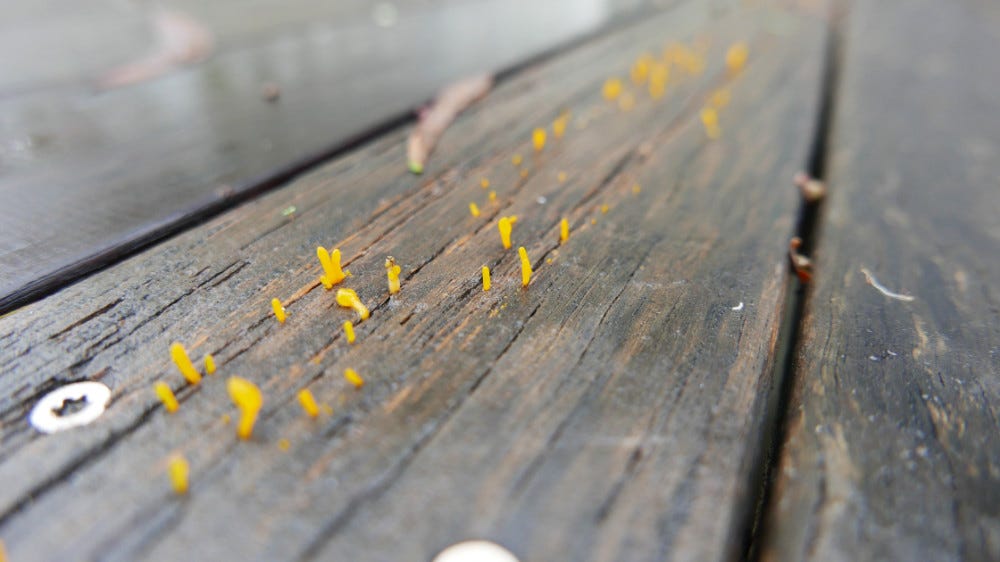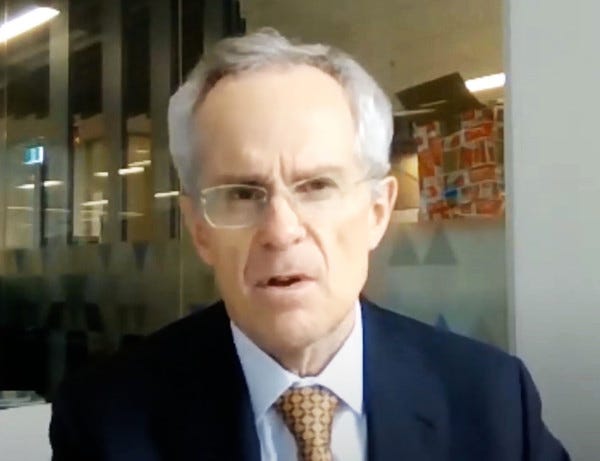Escape from planet Covid, and the trouble with Sims
Good afternoon everyone,
It’s wet. It’s so wet, it’s hard to remember what dry is like.
As with much of New South Wales, it’s been raining here in Helensburgh for what seems to be several months. The driveway’s gone green. The deck is sprouting orange fungus. I check between the dog’s toes for leeches after our short walks.
As the rain built to a crescendo over the past two weeks, the Crawford Media household was hit by Covid. It began with the youngest child and worked its way through the locked-down house until it came to me. After two years of hearing about the alien, it was inside me.
Interesting disease. If this was the mild version, I’m glad I didn’t meet the other ones. I’m triple vaxxed and I was prepared to laugh it off. No way. There’s something about Covid that is different: you can say “it’s like a bad cold”, or “it’s like a mild flu”, but actually it’s not really like either of those two afflictions. I suffered one of those strange, end-to-end dreaming nights where you’re exhausted in the morning. My legs were sore and I developed mouth ulcers. My teeth hurt. I felt odd.
I have known for some time that I owe my life to civilisation and technology: my father was saved by surgery and blood transfusion as a young man, I was cured of a strange disease of welts on one leg as a child, and I would never have been able to see clearly without glasses. In turn, I have seen my children contract life-threatening diseases and be saved by routine medical interventions. If I am ever tempted to idealise “the natural state”, all I have to do is picture my daughter, grey and listless, before the antibiotics kicked in.
My escape from Covid is another proof point. Had my body not been prepared by the vaccine, I’m not sure I would have survived. Melodramatic? Who knows? That’s the thing about things that didn’t happen.
I was always going to be the person who got the vaccination, who believed in science, who trusted the motivations of a legion of humans. Science works because working is built-in. If it didn’t, it wouldn’t be science. And I wouldn’t be here, listening to the water flowing and contemplating my good fortune.
I haven’t forgotten about journalism. It’s been interesting to see Rod Sims speaking in the lead up to his retirement as the Chair of the ACCC (Australian Consumer and Competition Commission) on March 20. In the interviews I have seen or read, Sims is talking about the Media Bargaining Code as a career highlight.
“It's been one of the most successful bits of public policy I've been involved with in over 50 years.”
Sims said that in conversation with Monica Attard, former ABC journo and now the co-director of the Centre For Media Transition (CMT) at the University for Technology Sydney (UTS). Check out the interview here.
I don’t want to play the man here, and I don’t want to detract from Sims’ career at the ACCC. He hasn’t been afraid to talk straight, to give interviews, and to champion consumer rights. To me it’s unfortunate that he has chosen the Code as his crowning glory.
There are some positives arising from the Code. Unquestionably there is more money in journalism, and there have been roles created because of the flow of money from Google and Meta to news companies. It has also been demonstrated that national governments can pass laws that have a real impact on global tech giants.
But the Code’s positives do not prevent it from being poor legislation and a questionable process. I find the acquiescence of most Australian journalists to the Code disturbing, and I wonder if the same process were applied in other areas whether they would see it the same way.
Sim’s argument rests on the Code redressing the bargaining imbalance between news companies and the digital platforms.
“The Code had an objective. That objective was to even up the bargaining power ... clearly the media companies had almost no bargaining power ... [The Code] did that.”
“We didn't with this one instrument seek to solve all the problems of the media. The Code was meant to make sure that those who had content now could get appropriately paid for it.”
This sounds reasonable, because there actually is a massive bargaining imbalance between news companies and digital platforms. It’s real. But an imbalance itself doesn’t mean anything. There also has to be an exploitation of the imbalance. There has to be an unfair exchange of value. This is where the Code and all the reasoning around it falls down.
It falls down because no one has valued news content. No one has actually sat down and worked out how much the platforms are getting out of it, and what they are giving back to news. No one has had to answer that, because no one has been designated under the Code and the Code has never been used. Except as a threat. According to Sims, that was always the plan.
"We never wanted to go to arbitration, we just wanted the threat. What happened in the Code was that the threat of arbitration was replaced by the threat of designation. What we learnt was that Facebook and Google just did not want to get designated."
So the modus operandi is to find out what the target really doesn’t want, threaten them with that, and thereby achieve a private transfer of value we have no evidence should be happening in any case.
If this was really a matter of redressing a bargaining imbalance, surely we’d see the platforms getting on with it, using the content they’ve purchased to its utmost. Not happening. Google News Showcase, for example, has the look and feel of a product designed to hold and hide news rather than showcase it.
I am so fascinated by this situation, and by the platforms’ reactions to it. Google has done deals with almost everyone. It is in the good books. Meta is holding out on a couple of high-profile but low-volume publishers. Vestigial pride?
"I think Facebook is running a serious risk of designation," says Sims.
I so dearly wish to see this happen. We’d be one step closer to knowing the economic value of news in the modern world.
Podcast incoming
The podcast this week is with my wonderful former colleague Sarah Bristow. Bristow is the News Director at Discovery in New Zealand, and a person of great integrity and ability. Rather than post the podcast here, I am going to send that as a separate newsletter: otherwise this newsletter subject line becomes the podcast title, and that wouldn’t be right!
Bye for now,
Hal





